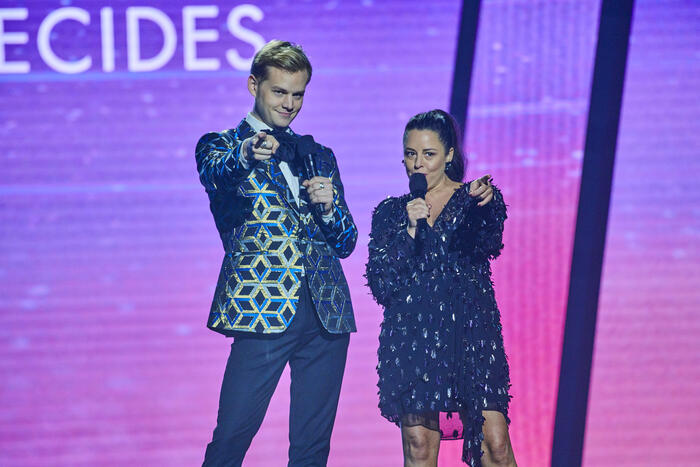Eurovision – Australia Decides will be back next year

Australia is confirmed for Eurovision 2022 – and the national selection process Australia Decides returns after a year’s hiatus to the Gold Coast where it’s a growing tourism dollars magnet.
To kick off, organisers are asking songwriters to submit their songs – and as many as they want. 700 songs were submitted in its 2019 debut.
Creative director of Eurovision – Australia Decides, Paul Clark, said after a year on the bench due to COVID, there will now be an event which will blow people’s minds and touch their hearts.
“We want to get the passion going for Eurovision and our incredible musicians. So huge props to SBS, the Queensland Government and Major Events Gold Coast for backing #AusDecides again. We’ve got some very exciting artists to announce shortly, but first we need songs. It’s an opportunity for all our songwriters to showcase their best and boldest – please send your songs to the SBS song portal. Before you know it, you could be in the next announcement, when we reveal some very exciting artists and songwriters.”
It is open to all genres, and to published and unpublished writers.
Submissions are to be made here. The song portal, supported by APRA AMCOS, is open until September 26.
Songs will be shortlisted and announced later this year, along with 10 artists. The public and a jury will decide who will take the stage in Italy for the 66th Eurovision contest.
Australia Decides screens on SBS on Friday, February 25 and Saturday 26. It generally draws a viewing audience of around the 300,000 mark.
Gold Coast mayor, Tom Tate, said if there’s one event that screams “Gold Coast”, this is it.
“Like Eurovision, we are bold, unapologetic and famous for fun. I am delighted that Eurovision – Australia Decides is back and look forward to the best musical talent taking to the stage at our exhibition centre. My message is: go big.”
SBS’ director of television and online Ccntent, Marshall Heald, said: “Australia is home to so many talented artists and songwriters, and SBS is proud to provide this international platform for our nation’s incredibly diverse music community. Eurovision – Australia Decides is a unique opportunity for established and undiscovered songwriters to show us what they’ve got and for a suite of Australian artists to bring these songs to life on stage in February. It’s over to you Australia – let’s give Europe our best.”
Next year’s event is supported by the Queensland Government through Screen Queensland’s Production Attraction Strategy and Tourism and Events Queensland.
It is expected that having the area profiled on national television will be a tourism boost, but exact figures are not released aside from the 200 jobs created locally in the four week run-up.
A survey conducted on effects on countries in the northern hemisphere which hosted or won Eurovision showed a three-year rise in tourism and tax revenue.
This was probably what the Queensland Government had in mind when it was among those in Australia which pushed for Eurovision Asia Pacific as a stand-alone event, and where the Gold Coast would be a revolving host city.
However the idea fell over due to bickering over host cities and broadcaster, and China’s reluctance over imported entertainment shows.
This year, Australia’s entrant Montaigne fell at the first semi-final after organisers decided it was too risky to fly her and the team (including hosts Myf Warhurst and Joel Creasey) during the pandemic, and having Montaigne the only one of the 10 semi-finalists to perform remotely failed to fly.
Not surprisingly, Australian ratings were down, with 123,000 tuning in for the live early morning grand final broadcast, peaking at 170,000 for the winner’s announcement, and 165,000 viewers tuning in for Sunday night’s prime-time repeat.
In the northern hemisphere it drew 183 million viewers across 36 markets, a 4% rise.
The contest’s popularity with the younger demo was shown with a high viewership in the 15–24 bracket.
50.6 million unique viewers across 234 countries watched on the official YouTube channel, with 18–34-year-olds making up 71% of those.
Official social media accounts generated 14 million engagement actions.
Content on the official Facebook page reached 21 million people, 8 million people on Instagram where posts were seen 170 million times, and nearly 5 million tweets about the contest were sent on the night of the grand final with almost 80 million total views on Twitter for videos related to Eurovision during the week of the event.






























